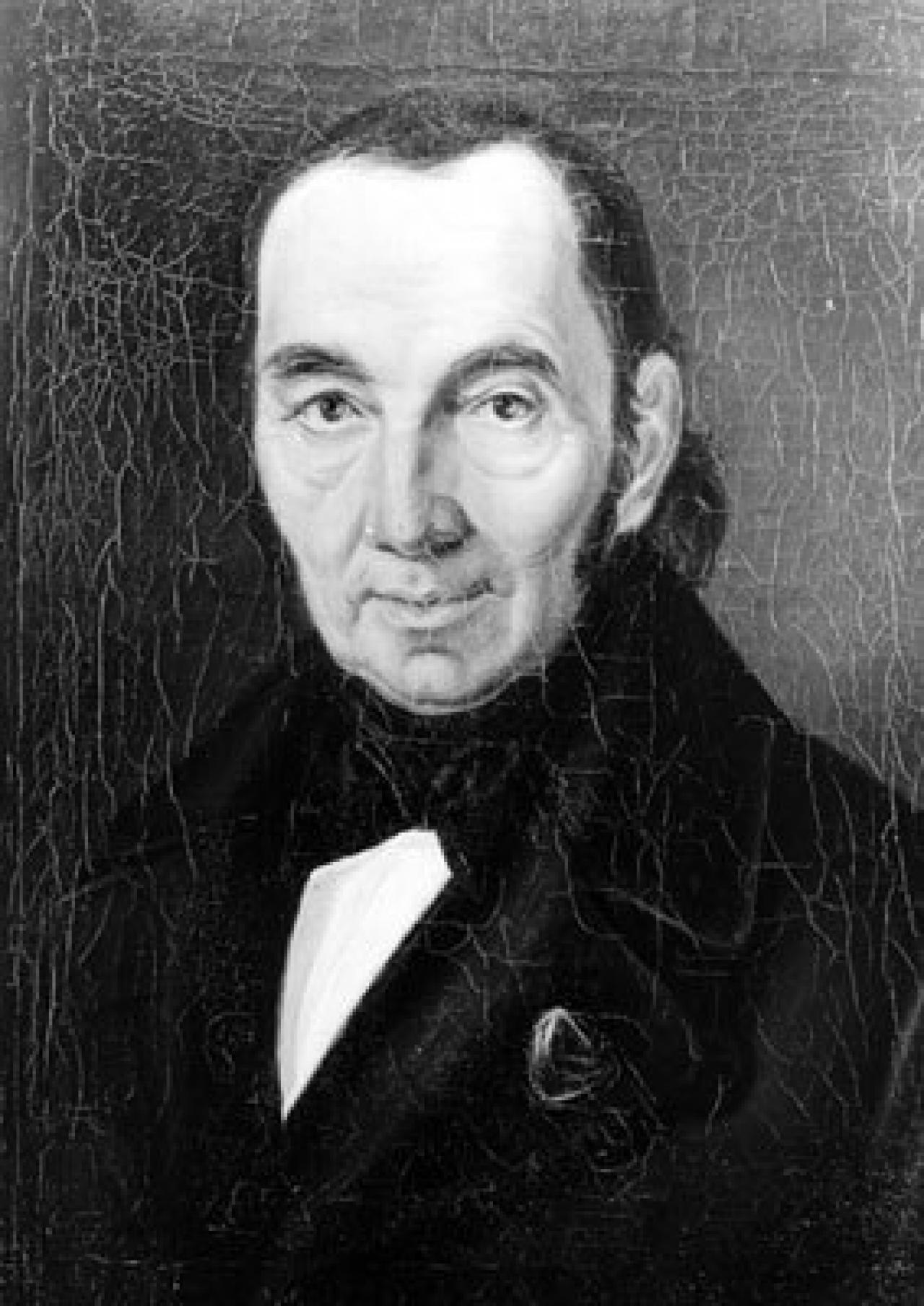

Johan Anton Stolz
- 1778–1855
- Johann Anton Stolz was a physician and geologist from Ústí nad Labem and later from Teplice. For his treatment of the wounded after the Battle of Chlumec (1813) and in the subsequent eradication of the typhus epidemic, he was decorated by Emperor Francis I. He was responsible for the first geological collections in Northwest Bohemia and the mineral stolzite is named after him. He maintained contacts with Goethe, A. von Humboldt, Kašpar Šternberk and other members of the Royal Bohemian Society of Learning and his name is associated with the founding of the Czech National Museum.
- Johann Anton Stolz was born in Prague, but spent his childhood and youth in Jáchymov. We see here, as with many other local naturalists, how the landscape of childhood, in this case a landscape with varied geology, can influence the direction of a scientist's life. There are relatively few written records of Stolz, as he is said to have suffered from an aversion to writing. Although he was a renowned geologist and a member of learned societies, he did not write any scientific papers during his lifetime. However, his personality is mentioned, for example, by Goethe in a letter to his son in June 1813: “A nice young man full of determination, although at the same time, as I know from others, he can barely keep a household in his situation…. Remarkably, and certainly unusually, he has just turned down a very good job because he doesn't feel good enough for it, and what`s more, it would hinder his education. “Goethe also mentions his family: “a kind landlady and two very cute little sons “and Stolz himself as “a good geologist and a very diligent member of the Jena Learned Society “. Interestingly, the letter was written after Goethe, together with Stolz and F. A. Reuss, climbed Mount Bořeň where they discussed the volcanic origin of basalt. Goethe met with Stolz again at the beginning of August 1813. At the end of August (29-30 August), the Battle of Chlumec took place near Teplice, in which the Allied armies defeated Napoleon's army. Casualties were estimated at 11,000 dead, and many more succumbed to wounds and infection in the hot days that followed the battle. Dr Stolz was one of the few doctors to intervene and treated more than 1,200 wounded with the help of several local volunteers. In the warm weather soon after the battle typhus began to spread, the outbreak of which Stolz managed to eradicate by effective intervention. (And this was before Pasteur's discoveries of the causative agents of typhus!) A year later he used his experience and managed to prevent the spread of the epidemic in Teplice. He received the gold medal for civil merit from Emperor Francis I for it.After moving to Teplice, Dr Stolz worked as a local spa doctor until his death. Here he met thinkers and scientists and took part in the scientific debates that lie at the origin of geology as a science. For purely Czech science it is significant that together with Kašpar Šternberk, J. S. Pressl and others he was at the birth of the Czech National Museum, to which he donated his numerous mineralogical collections. The rare mineral stolzite (lead tungstate), which Stolz found on Mount Cínovec, is named after him. He was the owner of a unique mineralogical collection, which he wished to keep undivided. Unfortunately, it was sold off soon after his death and only a few samples are preserved in the National Museum.
- References
- Hubková, J.: Lékař a geolog Johan Anton Stolz. Příspěvky k ústecké vlastivědě Ústí nad Labem: Muzeum města Ústí nad Labem, 2013 s. 26–27.Krsek, M.: Po bitvě u Chlumce dychtily tisíce raněných po smrti, šířil se tyfus. URL: https://www.idnes.cz/zpravy/domaci/oslavy-200-vyroci-bitvy-u-chlumce.A130902_1972186_usti-zpravy_alh [12. 2. 2020].Ulrich, J.: Johann Anton Stolz. 220 let od narození geologa, lékaře a filantropa. Vesmír 12/1998, č. 77, str. 707.Urzidil, J.: Goethe v Čechách. Příbram 2009, s. 379–380.
- MZ
Keywords
; ; ; ; ;
Connected places
BořeňFranz Ambrosius Reuss
J. W. Goethe Commemorative Plaque in Bílina-Kyselka


